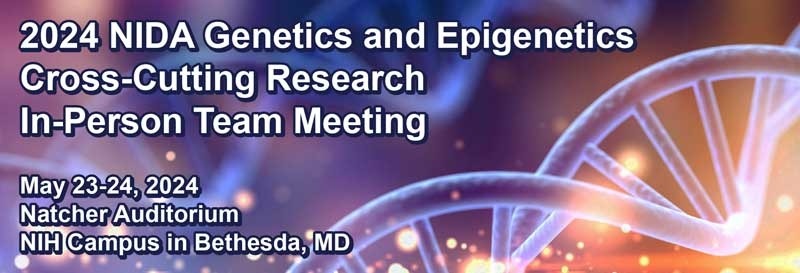
The Genetics and Epigenetics Cross-Cutting Research Team of the National Institute on Drug Abuse invites you to attend the May 23-24, 2024, NIDA Genetics and Epigenetics Cross-Cutting Research Team Meeting at Natcher Auditorium on the NIH Campus in Bethesda, MD. This is an in-person meeting. We expect to have more than 215 scientific presentations. Registration is open.
What We Do:
GEDN supports research on the genetics, and epigenetics, and developmental mechanisms that underlie addiction and substance use disorders.
Program Areas:
- Development of neural pathways and brain structures that mediate substance use disorders and addiction. This includes research on stem cell and progenitor cell induction, pattern formation, proliferation, and phenotypic restriction, specification of neuronal and glial cell fate, programmed cell death, guidance of glial and neuronal migration, and regulation of dendritic and axonal outgrowth, navigation, target selection, and synapse formation.
- The role that transcription factors, non-coding RNAs, scaffolding proteins, adhesion molecules, signaling molecules, cytoskeletal proteins, and other molecules play in mediating memory and learning and the neural adaptation to addictive drugs.
- Cell biology studies of addiction, including research on membrane and protein trafficking, signal transduction pathways, cytoskeletal rearrangements, protein-protein interactions, protein complex formation, synaptic vesicle formation, and ion movements.
- Genetic studies of vulnerability to addiction, including animal and human molecular genetics studies, QTL-based research, and pharmacogenetics.
- Epigenetics mechanisms of substance use disorders and addiction including chromatin modification and non-coding RNAs.
- Molecular genetics and genomics studies related to underlying biology of the response to addictive drugs, including model organism genomics, functional genomics, proteomics, gene expression studies, and mutagenesis studies.
- Bioinformatics approaches to better model the genetics of substance use disorders, including data integration, methods development, epistasis analysis, and machine learning.
